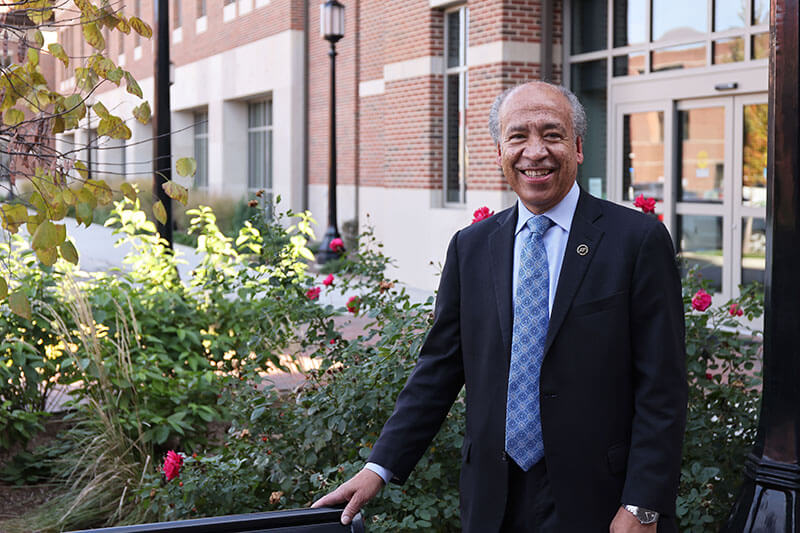
The Animal Disease Diagnostic Laboratory has a new name that will honor Purdue University College of Veterinary Medicine Dean Willie Reed as a result of action taken by the Purdue University Board of Trustees Friday, June 7. To recognize Dean Reed’s loyalty and service to Purdue University, the profession of veterinary medicine, and the state of Indiana, the board approved renaming the facility as the Willie M. Reed Animal Disease Diagnostic Laboratory.
Dr. Reed is stepping down June 30 after serving the last 17 years as dean, for a total of 25 years of service to the university. He will be granted dean emeritus status. The Board of Trustees also approved the appointment of Purdue 150th Anniversary Professor S. Kathleen Salisbury, the college’s associate dean for academic affairs, as interim dean, effective July 1.
Dean Reed was praised for consistently championing One Health at Purdue — bringing together animal health, human health and plant health. The university is continuing to strengthen and accelerate his groundbreaking approach to excellence and education in these areas. Dean Reed also has guided the College of Veterinary Medicine in developing and executing a series of three visionary strategic plans to enhance the future through innovative educational initiatives, groundbreaking research, and creative and effective engagement programs. His strategic planning initiatives culminated in the opening of the David and Bonnie Brunner Purdue Veterinary Medical Hospital Complex in 2022 — expanding the college’s Small Animal Hospital and creating new Equine and Farm Animal hospitals to replace the Large Animal Hospital.
Dean Reed’s leadership of the college also improved Purdue DVM and veterinary nursing education by implementing new approaches to clinical-skills training and the use of innovative technology. He fostered growth in research programs, achieving record-level research funding through expanded external support for scientific discovery that advances medicine for both animals and humans. He also spearheaded efforts that enhanced the teaching, clinical and research facilities in Lynn Hall; increased the DVM class size by 20%; fostered successful recruitment of faculty members from around the globe in many disciplines; and significantly expanded the college’s global engagement programs.
In 2023, Dean Reed’s many achievements were recognized when he was selected by the American Veterinary Medical Association as its inaugural recipient of the AVMA Frederick Douglass Patterson Lifetime Achievement Award, honoring his innovative leadership and contributions in supporting and promoting diversity, equity and inclusion in the veterinary profession.
